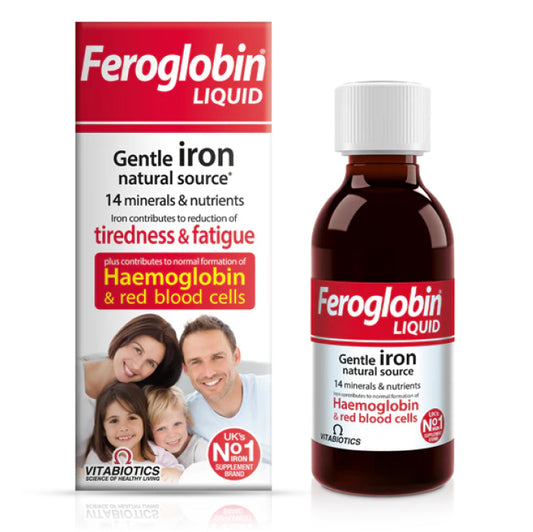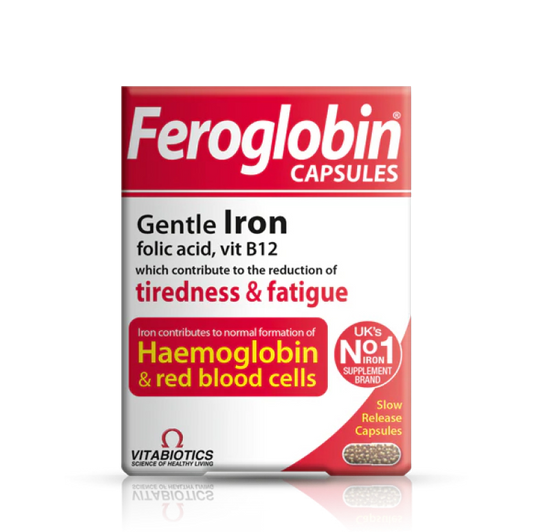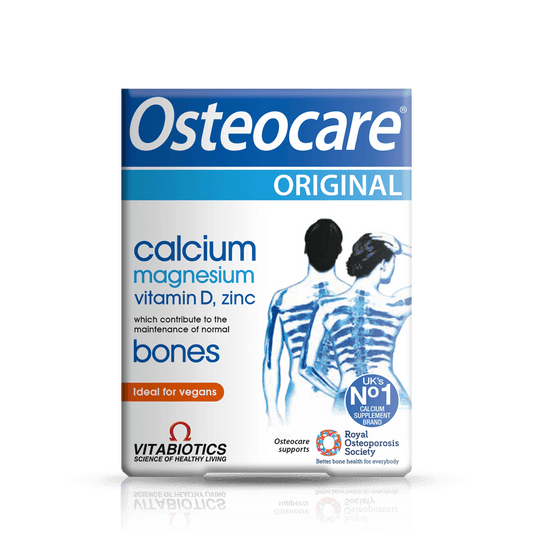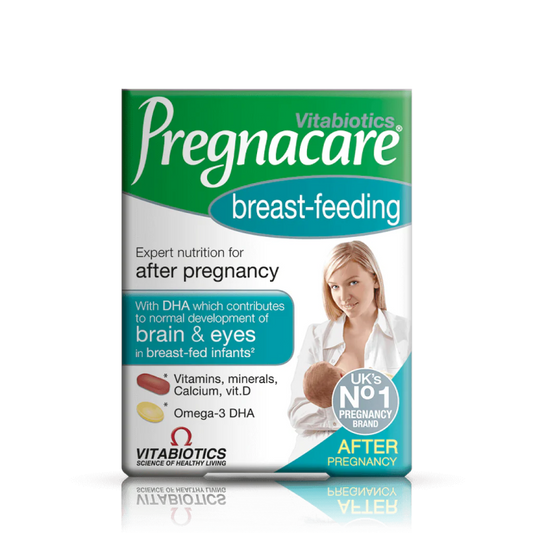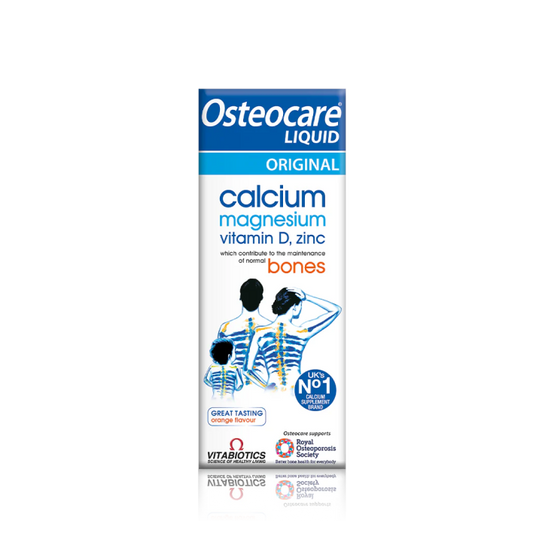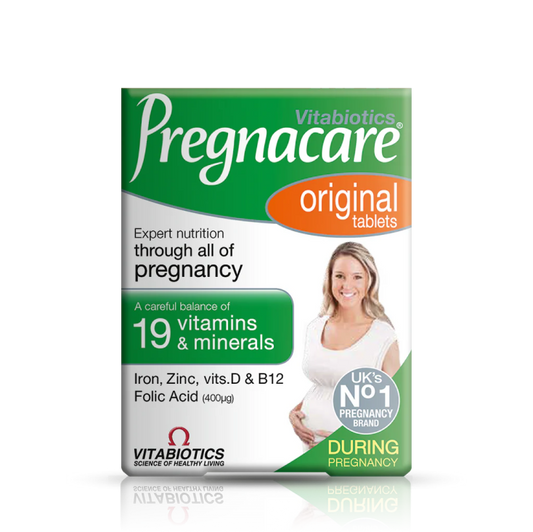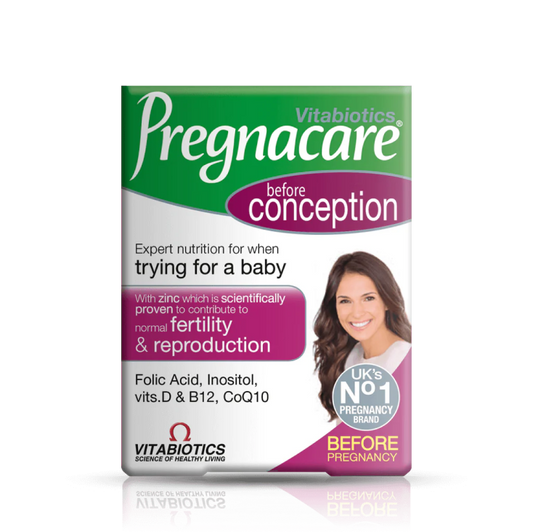Folic acid, also known as vitamin B9 or folates, is a key nutrient that plays a fundamental role in many processes in the human body. It is often associated primarily with pregnancy due to its importance in the proper development of the fetus, but its effects are much broader and concern the health of people of all ages. In this blog post, we will take a closer look at what folic acid actually is, what benefits it brings to our health, where to find it in your daily diet, when to consider supplementation, and what are the potential risks associated with its deficiency or excess.
What exactly is folic acid and what role does it play in your body?
Folic acid is a water-soluble B vitamin, specifically vitamin B9 . It is worth distinguishing between two terms: folates and folic acid. Folates are naturally occurring forms of this vitamin in food, while folic acid is a synthetic form that can be found in dietary supplements and fortified foods. Both forms are important for our bodies, although their absorption and metabolism may differ.
Vitamin B9 plays a number of extremely important roles in the human body. It is essential for the synthesis and repair of DNA and RNA , which is crucial for cell division, growth and tissue regeneration. This process is particularly intense during periods of rapid growth, such as pregnancy and early childhood. Folic acid, together with vitamin B12, participates in the production of red blood cells in the bone marrow, preventing megaloblastic anemia.
In addition, vitamin B9 plays an important role in the functioning of the nervous system , supporting the production of neurotransmitters such as serotonin, which affects our mood, concentration and sleep. It also participates in the metabolism of homocysteine, converting it to methionine. The correct level of folic acid helps maintain the correct concentration of homocysteine, a high level of which can increase the risk of cardiovascular diseases. The key role of folic acid in the proper development of the fetus cannot be ignored, especially in the first weeks of pregnancy, when the child's nervous system is formed. Vitamin B9 also supports the immune system, contributing to the production of white blood cells.
Folic acid and pregnancy - the key to your child's health
Undeniably, the most important role of folic acid is its participation in the proper development of the fetus . The appropriate concentration of this vitamin in the mother's body is absolutely crucial in preventing neural tube defects (NTDs) in the child, such as spina bifida or anencephaly. Studies have shown that supplementation with folic acid before and during pregnancy significantly reduces the risk of these serious developmental defects, even by almost 70% . The neural tube, from which the child's brain and spinal cord develop, closes in the first 4 weeks of pregnancy, often before the woman finds out she is pregnant. That is why it is so important for women of reproductive age who are planning a pregnancy to take care of the appropriate level of folic acid before conception. The Polish Society of Gynecologists and Obstetricians (PTGiP) recommends folate supplementation at least 12 weeks before the planned conception.
This may be useful to you: Pregnacare - vitamins and supplements for pregnant women
Taking folic acid during pregnancy not only protects against WCN, but also supports the normal growth and development of the fetus, prevents anemia in the mother, and supports the development of the placenta and fetal tissues. There are also reports suggesting that adequate levels of folic acid may reduce the risk of other birth defects, such as heart defects, cleft lip and palate, and urinary tract problems. Some studies also indicate a potential reduction in the risk of autism in children of mothers who supplement folic acid, and Down syndrome , although research in these areas is still ongoing and requires further confirmation.
Folic acid, for both women and men
Although folic acid is commonly associated with pregnancy, its health benefits extend far beyond that period and apply to both women and men of all ages. Vitamin B9 plays an important role in maintaining cardiovascular health by lowering levels of homocysteine , an amino acid that, when high, is a risk factor for atherosclerosis, heart attack, and stroke. Regular supplementation with folic acid can help reduce this risk.
Folic acid is also important for mental health and cognitive function . It supports the production of neurotransmitters, which can improve mood and reduce the risk of depression. Studies suggest that adequate levels of vitamin B9 can support mental function and reduce the risk of dementia, especially in older people. In men, folic acid is important for the proper course of spermatogenesis , affecting fertility. In addition, vitamin B9 contributes to the maintenance of healthy hair, skin and nails, which can be inferred from symptoms of deficiency, such as pale skin and nail discoloration. Some studies also indicate a potential role of folic acid in the prevention of certain types of cancer, but further, more detailed research is needed on this issue.
Where to Find Folic Acid? Natural Sources in Your Diet
Folate, the natural form of vitamin B9, is found in many foods. Including a variety of foods rich in this vitamin in your diet can help maintain the right levels in your body. The best natural sources of folate include:
- Green leafy vegetables – such as spinach, kale, lettuce, arugula, broccoli and asparagus
- Legumes - including lentils, beans (e.g. red, white), peas and chickpeas -> it is worth knowing that lentils are considered one of the richest sources of folates
- Other vegetables - e.g. Brussels sprouts, cauliflower, beetroot, parsley and parsley root
- Fruits - especially citrus fruits (oranges, lemons, grapefruits), avocados, bananas, melons and strawberries
- Nuts and seeds - e.g. sunflower seeds, walnuts, hazelnuts and chia seeds
- Wholegrain foods - such as wholegrain bread and pasta, and fortified breakfast cereals can also be a source of folic acid
- Liver - especially beef, which is one of the most concentrated sources of folate, and egg yolks
It is important to remember that folates in food are quite unstable and can be subject to significant losses during heat treatment and storage . Therefore, it is worth including both raw and briefly cooked vegetables and fruits in your diet to maximize folate intake.
The table below shows examples of natural sources of folates and their approximate content in 100 g of product:
|
Food product |
Approximate folate content (µg/100g) |
|
Cooked lentils |
358 |
|
Raw spinach |
194 |
|
Cooked beef liver |
212 |
|
Cooked white beans |
177 |
|
Boiled Brussels sprouts |
130 |
|
Boiled broccoli |
119 |
|
Cooked asparagus |
65 |
|
Orange |
55 |
What are the recommended doses of folic acid for different age groups?
Although a balanced diet rich in natural sources of folate is crucial, in some situations folic acid supplementation may be necessary or highly recommended. This is especially true for women planning a pregnancy and pregnant women , due to the increased need and critical role of folic acid in fetal development. Supplementation is also recommended for people with absorption disorders such as celiac disease, people at risk of B vitamin deficiencies, and the elderly , in whom nutrient absorption may be less efficient.
See also: Vitamin B1 as the basis of energy and health of your body
Recommended daily doses of folic acid vary depending on age and physiological condition:
- Adults - recommended intake of 400 µg (0.4 mg) folic acid per day
- Women planning a pregnancy - should take 400 µg (0.4 mg) of folic acid daily, preferably start supplementation at least 12 weeks before planned conception
- Pregnant women - the recommended dose is usually 400-800 µg (0.4-0.8 mg) per day -> The Polish Society of Gynecologists and Obstetricians recommends 800 µg of the active form of folates (5-MTHF) per day or preparations containing both active folate and synthetic folic acid
- Women who gave birth to a child with a neural tube defect in a previous pregnancy or who have other risk factors (e.g. BMI > 30 kg/m² and low folate levels) - higher doses are recommended, even 4-5 mg daily, under the supervision of a doctor
- Breastfeeding women should take about 500 µg (0.5 mg) of folic acid per day
- Children - doses vary depending on age, e.g. for children aged 1-3 it is approximately 150 µg per day
- Men planning a pregnancy - PTGiP recommends that they consider supplementation with an active form of folate (0.4 mg) at least 12 weeks before conception.
The table below shows the recommended daily intake of folic acid for different age groups and physiological conditions:
|
Group |
Recommended daily intake (µg) |
|
Babies up to 6 months of age |
65 |
|
Babies 7-12 months of age |
80 |
|
Children 1-3 years |
150 |
|
Children 4-8 years old |
200 |
|
Children and youth 9-13 years old |
300 |
|
Youth 14+ and adults |
400 |
|
Women planning a pregnancy |
400 |
|
Pregnant women |
800 (5-MTHF form recommended) |
|
Breastfeeding women |
500 |
What are the symptoms of folic acid deficiency?
Folic acid deficiency can lead to a range of unpleasant symptoms and serious health consequences. The most common symptoms of deficiency include feeling constantly tired and weak, pale skin, irritability, headaches, and difficulty concentrating and remembering . Mouth ulcers and a burning tongue may appear, as well as changes in nail pigmentation . Other symptoms include shortness of breath, heart palpitations, loss of appetite, and digestive problems, as well as sleep problems and mood changes , including an increased risk of depression. Sometimes there is tingling and numbness in the limbs.
Long-term folate deficiency can lead to serious consequences, such as megaloblastic anemia , characterized by a reduced ability of the blood to transport oxygen. The risk of cardiovascular disease is also increased due to elevated homocysteine levels and some types of cancer. In pregnant women, folate deficiency is particularly dangerous, as it can lead to neural tube defects in the fetus. Vitamin B9 deficiency can also affect fertility in both women and men and weaken the immune system. It is worth remembering that the symptoms of folate deficiency can be diverse and sometimes overlap with the symptoms of deficiencies of other vitamins, such as vitamin B12 .
Risks and side effects of excessive folic acid intake
Although folic acid is a water-soluble vitamin and excess is usually excreted from the body in the urine, taking too high doses, especially in supplement form, can be associated with certain risks and side effects. One of the main risks is masking a vitamin B12 deficiency, which can lead to serious neurological damage that, if left untreated, may be irreversible.
Excessive intake of folic acid may also cause:
- Digestive problems - such as nausea, bloating and diarrhea
- Insomnia and irritability and allergic reactions
- Supporting the development of existing cancers - not fully confirmed, in people with a history of colon polyps
For this reason, upper tolerable limits for folic acid intake from dietary supplements have been established. For adults, it is 1,000 µg (1 mg) per day. For children, these limits are lower and depend on age. It is worth emphasizing that these limits apply to synthetic folic acid from supplements and fortified foods, not naturally occurring folates in food, which are unlikely to be overdosed. It is always recommended to consult a doctor before starting folic acid supplementation to determine the appropriate dose and exclude potential interactions with other medications or supplements.
The table below shows the upper tolerable intake levels of folic acid from dietary supplements:
|
Age group |
Tolerable Upper Intake Level (µg/day) |
|
Children 1–3 years |
300 |
|
Children 4–8 years old |
400 |
|
Children and adolescents 9–13 years old |
600 |
|
Youth 14–18 years old |
800 |
|
Adults 19+ |
1000 |
|
Pregnant women |
1000 |
|
Breastfeeding women |
1000 |
Current recommendations for folic acid intake
Current recommendations for folic acid intake place particular emphasis on its importance for women of reproductive age and pregnancy . The Polish Society of Gynecologists and Obstetricians (PTGiP) recommends folate supplementation for all women of reproductive age. The recommended dose for women planning a pregnancy is 400 µg (0.4 mg) daily, starting supplementation at least 12 weeks before the planned conception. During pregnancy, PTGiP recommends supplementation with 800 µg of the active form of folate (5-MTHF) daily or preparations containing both 5-MTHF and synthetic folic acid. Higher doses (5 mg daily) are recommended for women with a history of pregnancies with neural tube defects or with a BMI above 30 kg/m² and low folate levels. Supplementation is also recommended during breastfeeding at a dose of 500 µg daily. Interestingly, PTGiP also recommends considering supplementation with an active form of folate (0.4 mg) in men planning a pregnancy, at least 12 weeks before conception, due to the potential impact on sperm quality.
This may be useful to you: Ultra Folic Acid - folic acid supplement
For adults in general, the recommended daily intake is 400 µg, and for children, doses are adjusted to their age. Experts emphasize that although a diet rich in folates is important, in many cases, especially during pregnancy planning and pregnancy itself, supplementation is necessary to ensure adequate levels of this vitamin and minimize the risk of serious developmental defects .
Make sure you have adequate folic acid levels every day!
Folic acid is an extremely important nutrient that performs many key functions in the human body. Its role in preventing neural tube defects in the fetus is invaluable, which is why supplementation is so strongly recommended for women planning a pregnancy and during it. However, the benefits of proper folic acid intake apply to each of us, affecting the health of the heart, nervous system and general well-being. Let's remember to include a variety of products rich in folates in our diet, and if necessary, consult a doctor about supplementation to ensure that we and our loved ones have optimal levels of this essential vitamin.


